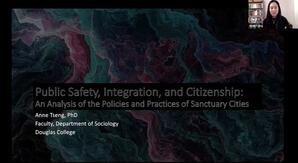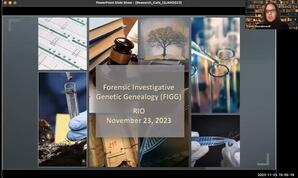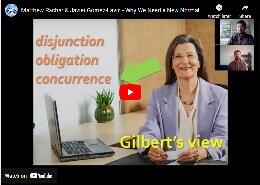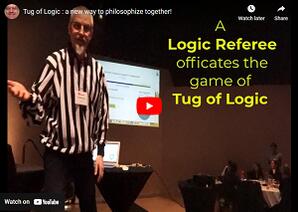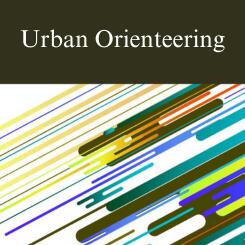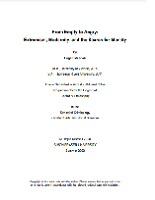Humanities and Social Sciences
Person Preferred Name
(none provided) (none provided)
Related Works
Content type
Video
Description / Synopsis
Presented at the Research Café on May 9, 2024.
Origin Information
Content type
Video
Description / Synopsis
Presented at the Research Café on March 21, 2024.
Origin Information
Content type
Video
Description / Synopsis
Presented at the DC Research Café on November 23, 2023.
Origin Information
Content type
Video
Description / Synopsis
What do we owe each other when we act together? According to normativists about collective action, quite a bit. They contend that collective action inherently involves a special normative status amongst participants, which may include obligations to do one’s part, to take due care for expectations generated in other participants, and even to faithfully follow through on others’ intentions. By contrast, non-normativists argue that some collective actions do not involve any special normative relations. Here, we build on recent empirical work whose results lend plausibility to a normativist account. Our present studies investigate the specific package of mutual obligations associated with collective action.
Origin Information
Content type
Digital Document
Abstract
This dissertation gives a philosophical account of acting together with others in the sense of collaboration or partnership. One part of that project is empirical. I report and elaborate on experimental research conducted on our everyday notion of acting together in order to better understand what it is. Another part, which offers a philosophical theory of how we do it, defends the “higher-order interdependence view” of collective intention. I argue that, compared to other kinds of existing views, this theory provides the best explanation of the results of the empirical research.
Origin Information
Content type
Video
Description / Synopsis
This short video documents a match of Tug of Logic (an Internet-mediated audience response system enabling reasoning together through logically-structured social feedback) that was played by Canadian high school students in the context of the 2023 Ethics Bowl national championships at the Canadian Museum for Human Rights.
Origin Information
Content type
Video
Description / Synopsis
We have become too reliant on navigation technologies which have obscured our relationship with our surroundings. While apps like Google Maps enable a high degree of knowledge about one’s neighborhood to be at one’s fingertips, they undermine exploration and radical immersion in one’s surroundings. Immersion is our natural way of existing in our spaces, prior to the rise of technological mediation. These days, the sport of “Orienteering” has formed to encourage fitness and engagement with nature and the outdoors, and some adventure in this style in the city, but we can also envision the significance of “Urban Orienteering,” where we focus on the city, its machinery, and its steel and glass, since these are now our home. Hip-hop, punk rock, skateboarding culture, parkour, …. and radical solidarities await us in the modern city, but we won’t locate these vital spaces and places and concepts in our mapped reality. Encouraging walking, public transit, and wandering, and regulating the place of cars and dangerous vehicles is the pathway to a new commons for a new era of radical interdependence of all life in a technologically-enframed consciousness. We hit SDG’s # 3,4,5,7,9,11,13 and 16.
Origin Information
Content type
Digital Document
Abstract
The focus of my dissertation is a general and comprehensive examination of Locke’s view of divine power. My basic argument is that John Locke is a theological voluntarist in his understanding of God’s creative and providential relationship with the world, including both the natural and moral order. As a voluntarist, Locke holds that God freely imposes both the physical and moral laws of nature onto creation by means of his will: this contrasts with the intellectualist perspective in which the laws of nature emerge from the essences of things. For Locke, there are no intrinsically necessary laws in the created order: both physical and moral laws are arbitrary determinations of the divine will. While these laws are not intrinsically (or absolutely) necessary, they are hypothetically necessary. Hypothetical necessity involves things that could have been otherwise, but which are necessary based on the supposition of a free action and other relevant conditions pertaining to the actor. Concerning God, we can understand hypothetical necessity in the following way: □ [(X & P) → Y]. X is a variable that ranges over a subset of contingent propositions about actions. ‘P’ is the proposition ‘God is perfect’. And Y is any proposition that is a necessary consequent of both X and P. In any possible world in which God (understood as a perfect being) performs X, it is the case that Y will obtain. Supposing that God decides to create beings like us, God must of necessity craft the moral laws of nature in a way that harmonizes with our nature. What grounds this necessity is that God must act consistently with the perfection of the divine nature: to give us a different law would be less than perfect. Furthermore, I argue that certain physical laws of nature – those that help to realize our nature – are also hypothetically necessary.
Origin Information
Content type
Digital Document
Abstract
The present work has two aims: to fill in this gap in the phenomenological literature and to examine the intentionality of a question, and this in order to elucidate the 'question-structure' of intentionality. The argument is basically this: Intentionality or conscious 'aboutness' is a riveting. The act does not 'stare' at its referent, courtesy of its 'sense'. As an act, it rivets on it, and it does so to the extent that either the object is interesting or the act is being informed. What's "interesting" holds out different possibilities (maybe A, or B, or C); what's informative is the reduction of those possibilities (A--not B or C). What is 'interesting' elicits that response called 'questioning'. In the answering-in the actualization of the question--the act itself becomes 'informative'. Thus, the act rivets on its object-the act is an act-in so far as it is structurally that of either a questioning or an answering, or somewhere in between. Thus, the 'question-notions' of interestedness and informativeness must figure centrally in a theory of intentionality. This being so, there are some other key notions that will have to be revised. or introduced accordingly. Not least of them are the notions of "emptiness" and fulfilment, of truth and evidence, and the problem of how reality is disclosed to us.
Origin Information
Content type
Digital Document
Abstract
An increase in the amount of high-profile incidents and attacks in the West perpetrated by individuals subscribing to a variety of extremist ideologies over the past decade has led to an influx of academic research concerned with uncovering how and why it is that individuals become radicalized toward ideologically-motivated extremist violence. While such research has examined a diverse range of social, demographic, and psychological variables and their potential link/correlation to the radicalization process, there has yet to emerge an accurate or reliable ‘profile’ with respect to who is more or less likely to become radicalized or join extremist/terrorist movements. The primary aim of this dissertation is to present a novel theoretical approach which centers the concept of individual identity as the fundamental factor which drives individuals in the West toward involvement with extremist movements. This theory of identity, which presupposes that macro-level structural factors fundamentally dictate how individuals experience and internalize identity on a micro-level, is outlined by tracing how the concept of ‘identity’ has historically evolved in ‘Western’ culture up to its current iteration in modern, hyper-connected, late-capitalist society. Once outlined, this theory of identity is empirically applied to the digital media content of two extremist movements via a mixed-method approach that utilizes topic modelling, sentiment analysis, and thematic/discourse analysis. More specifically, the content of the so-called Islamic State (including videos, magazines, and Twitter posts) and the user-generated comments of the notorious far-right online community r/The_Donald are examined through this theoretical lens and analyzed with this mixed-method approach. Results indicate that, wittingly or not, modern extremist movements routinely incorporate questions of identity into both their propaganda and general discussions in a manner that provides simplistic solutions and answers to the complex problems of identity and self that are created and amplified within modern Western culture. As such, this dissertation argues that the attraction of extremist ideology and the potential for extremist violence is, at current, an inevitable byproduct of modern macro-level structural and economic conditions.
Origin Information


